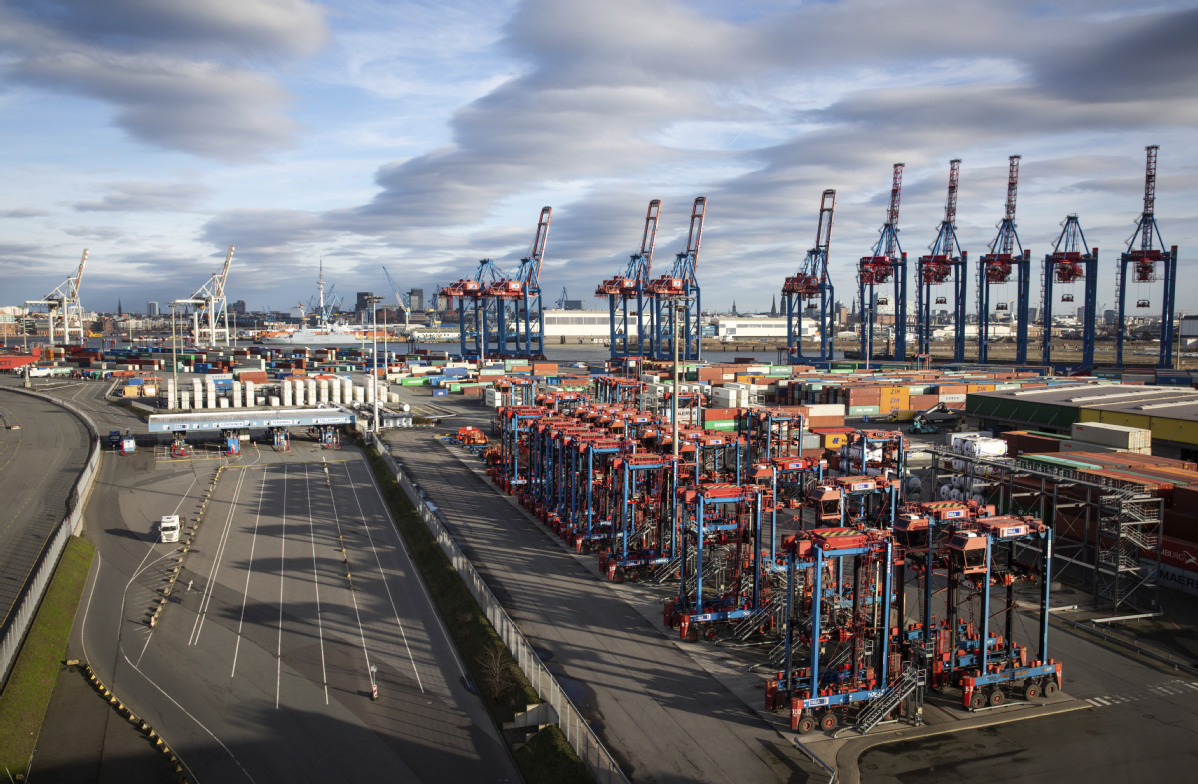Port deal set to expand China-Germany trade


Hong Kong-listed COSCO Shipping Ports Ltd's new strategic alliance with Hamburger Hafen und Logistik AG (HHLA), a German container terminal operator whose revenue puts it among the top players in the segment, will further augment the throughput at the Port of Hamburg and expand trade between China and Germany, experts said on Wednesday.
Terminal operator COSCO Shipping Ports is a business unit of China COSCO Shipping Corp, the country's largest shipping company by market share. It announced it will acquire a 35 percent stake in Hamburger Hafen's HHLA Container Terminal Tollerort, or CTT, at the German port. The two sides have signed the agreement already, the company said in a statement, without disclosing financial details of the deal.
"We are looking forward to strengthening the cooperative relationship with Hamburger Hafen through this investment to leverage the complementary advantages of both parties and provide better high-quality service to our customers," said Zhang Dayu, managing director of COSCO Shipping Ports.
CTT is one of three container terminals of Hamburger Hafen at the Port of Hamburg. It has four berths and 14 container gantry cranes. China COSCO Shipping Corp's largest container vessels with a capacity of 20,000 TEUs, or twenty-foot equivalent units, have been handled there.
The terminal's own railway station, which has five tracks, is connected to the hinterland, indicating goods can be moved quickly between CTT and other European destinations, according to the statement.
As one of the most important trade hubs connecting Europe with China, the Port of Hamburg boasts great geographical advantage and impressive distribution facilities. It is also a key node of the China-Europe Railway Express freight train service, said Zhou Zhicheng, a researcher at the Beijing-based China Federation of Logistics and Purchasing.
The Port of Hamburg's well-connected railroad networks and more than 7,000 supporting businesses like shipping services, logistics firms, warehouses and freight forwarders will help secure and enhance CTT long-term planning, cargo-handling capacity, job creation and more integrated logistics services. They will also support the growth of China-Germany trade in the coming years, Zhou said.
Thanks to their complementary goods trade structure, trade volume between China and Germany reached 858.25 billion yuan ($132.69 billion) in the first eight months of this year, up 21 percent year-on-year, data from the General Administration of Customs showed.
As nearly every third container that is handled in Hamburg has its origin in China or is destined for the Chinese market, the COSCO Shipping-Hamburger Hafen partnership will benefit Hamburg's position as a regional logistical hub and reinforce its competitiveness in the Baltic region, said Dong Liwan, a professor of shipping management at Shanghai Maritime University.
"Since many countries are confronting tough challenges caused by expensive shipping costs and container shortage, the partnership reflects COSCO Shipping Ports' effort to build a global terminal network by expanding its current operations, which include five terminals in China," he said.
As at the end of June, COSCO Shipping Ports operated and managed 357 berths at 36 ports worldwide, of which 210 were for containers, with a combined annual handling capacity of 118 million TEUs.
The closing of the transaction is subject to various competition and foreign trade approvals. HHLA's supervisory board has already approved the minority interest.
Leveraging on efficient operations and management capabilities, three container terminals at the Port of Hamburg attracted three major shipping alliances, including Ocean Alliance, formed by China COSCO Shipping, France's CMA CGM SA and other players, and the 2M Alliance, with Denmark's Maersk Line and Switzerland-based Mediterranean Shipping Co SA as partners.




































